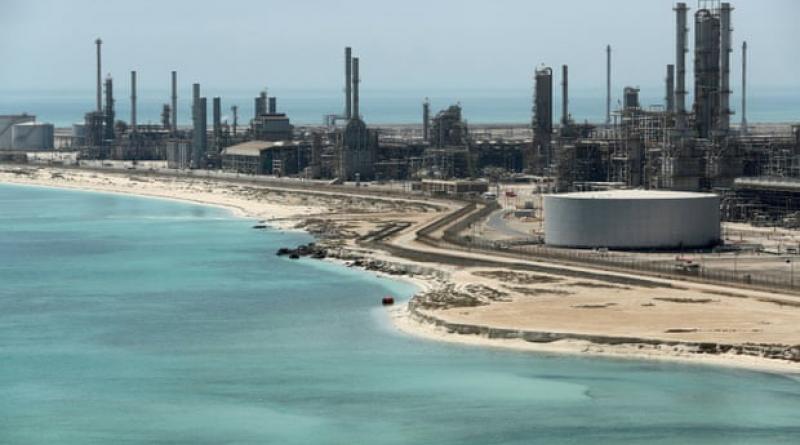World's largest oil firm agrees to carbon cuts to tackle climate crisis.

Saudi Aramco joins Oil and Gas Climate Initiative pledge but critics say targets are insufficient.
The world’s biggest oil company, Saudi Aramco, has joined an alliance of oil companies to set the first industry-wide target to help tackle the climate crisis by setting carbon emissions goals.
Saudi Arabia’s state oil giant has agreed to reduce the carbon intensity of its business as part of the Oil and Gas Climate Initiative (OGCI) which includes Shell, BP and ExxonMobil.
The industry-funded alliance has pledged to reduce the carbon intensity of their fossil fuel production by between 20 and 21kg of carbon dioxide per barrel of crude by 2025, or 13% below 2017 levels.
To meet this target oil companies will need to reduce the methane emissions that leak from oil and gas projects, cut gas flaring, invest in carbon capture technology or even run their oil rigs using renewable energy.
In a joint statement, the chief executives of the OGCI’s member companies said: “Together we are increasing the speed, scale, and impact of our actions to address climate change, as the world aims for net zero emissions as early as possible.”
Climate experts have warned fresh “intensity targets” are no replacement for a commitment to reduce carbon emissions on an absolute basis by producing less oil and gas.
The industry alliance was set up in 2014 by the chief executives of oil companies responsible for almost a third of the world’s oil production. It has angered climate campaigners in the past for “greenwashing” its activities, which are dwarfed by the scale of members’ contribution to the climate crisis.
Mark Campanale, the founder and executive director of Carbon Tracker, said: “We welcome attempts to reduce emissions, for example flaring and methane leakage. But the initiative cannot, however, ignore the real and glaring issue facing its members, namely commitments for absolute reductions in emissions.”
An intensity target means a company must reduce its emissions on a per-barrel basis but it does not cap the amount of oil that can be produced, so a company could still increase its contribution to the climate crisis even while meeting a carbon intensity goal.
Campanale called on the OGCI to undertake “the serious accounting work necessary for writing down fossil fuel assets” and begin a “real discussion, with the clear urgency the climate crisis demands”.
The OGCI’s full membership includes: BP, Chevron, China’s CNPC, Italy’s Eni, Equinor, ExxonMobil, Occidental Petroleum, Petrobras, Repsol, Saudi Aramco, Shell and Total.
16 July 2020
The Guardian




